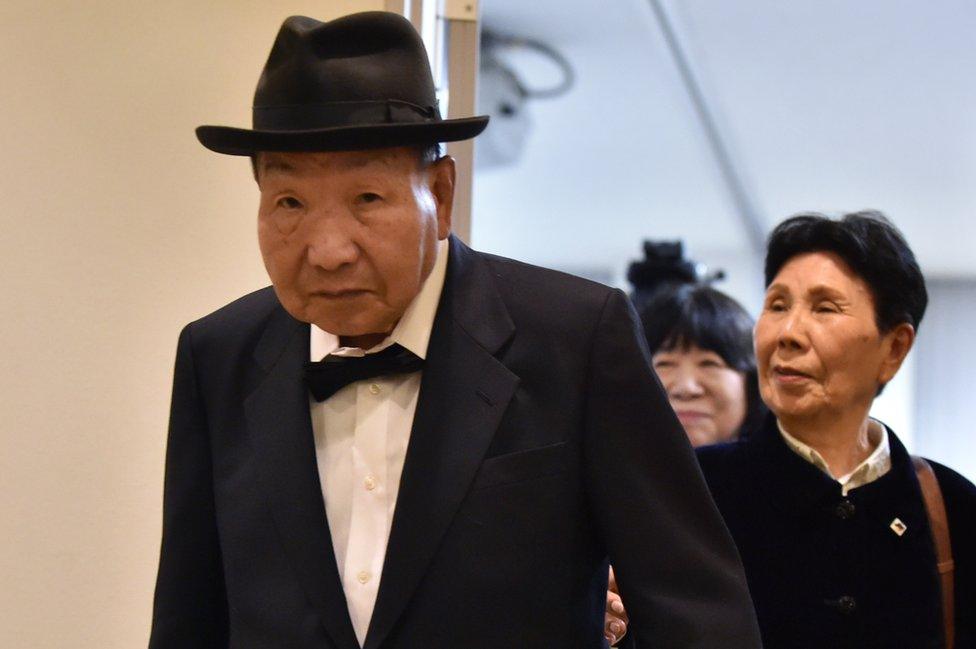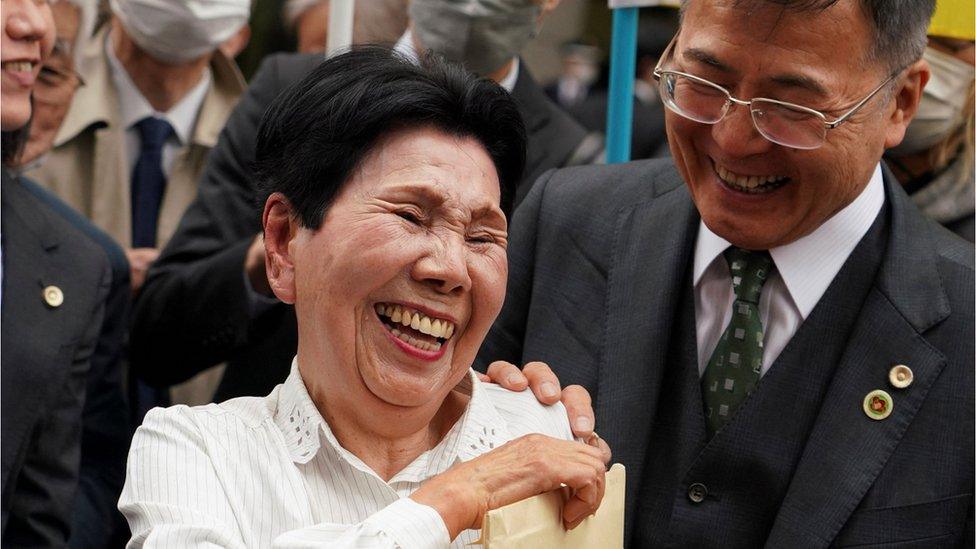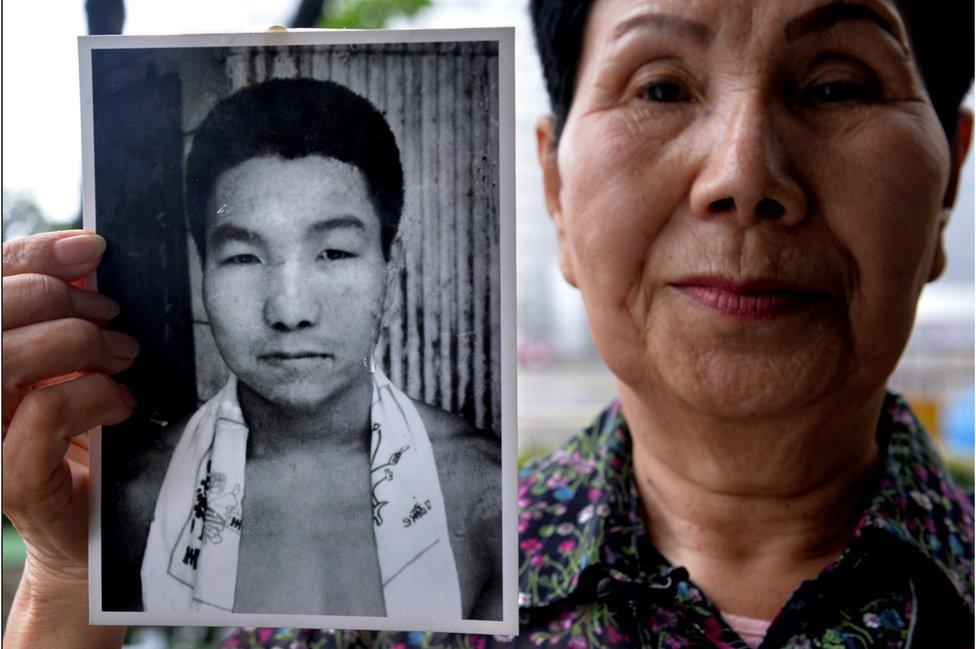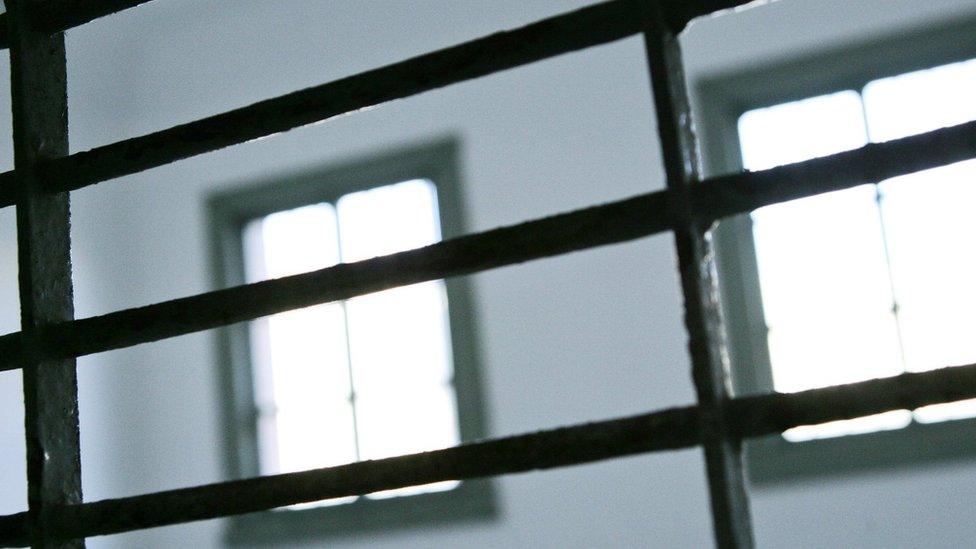Iwao Hakamata: Japan retrial for world's longest-serving death row inmate
- Published

Iwao Hakamata, pictured with his sister Hideko in 2019, was released from jail in 2014
A Japanese man who was on death row for nearly half a century has been granted a retrial.
Iwao Hakamata, now 87, is the world's longest-serving death row inmate, external, according to Amnesty International.
He was sentenced to death in 1968 for murdering his boss, the man's wife and their two children in 1966.
The former professional boxer confessed after 20 days of interrogation during which he said he was beaten. He later retracted the confession in court.
Rights groups have criticised Japan's reliance on confessions, which they say police often obtain by force.
In the retrial, judges will rule on whether DNA from blood stains found on clothing alleged to have been worn by the killer matches Mr Hakamata's.
His lawyers had argued that it did not and that the evidence was fabricated.
Iwao Hakamata was arrested and accused of robbing and killing his employer and his family at a miso or soybean processing factory in Shizuoka west of Tokyo in 1966. They were found stabbed to death after a fire.
In 2014, Hakamata was released from jail and granted a retrial by a district court, which found investigators could have planted evidence. The decision was then overturned by Tokyo's high court.
But, following an appeal, Supreme Court judges directed the high court to reconsider, leading to the ruling that a retrial should now go ahead.

Hideko Hakamata shares a smile with a lawyer for her brother outside court
"I was waiting for this day for 57 years and it has come," said Hakamata's sister Hideko, 90, who has spent years campaigning on her brother's behalf.
"Finally a weight has been lifted from my shoulders."
Iwao Hakamata's family says his mental health has deteriorated after decades in jail.
Japan is the only major industrialised democracy other than the US that still uses capital punishment.
Amnesty welcomed the retrial as a "long-overdue chance to deliver some justice".
"Hakamada's conviction was based on a forced 'confession' and there are serious doubts about the other evidence used against him," the group's Japan director Hideaki Nakagawa said.
The process for a retrial could take years if a special appeal is filed, however, and lawyers have been protesting against this system.
Lawyers in Japan also welcomed the ruling, but called on prosecutors to "swiftly start the retrial process without issuing a special appeal to the Supreme Court".
"We cannot afford any further delay to remedy Mr Hakamada, who has an advanced age of 87 and suffers mental and physical conditions after 47 years of physical restraint," said Japan Federation of Bar Associations head Motoji Kobayashi.

Related topics
- Published29 November 2022
